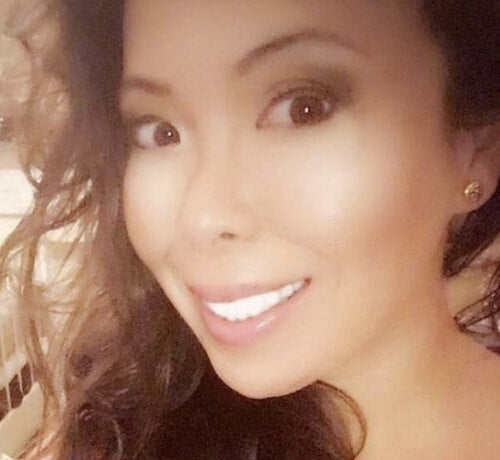Women are no strangers to the effects of a bad hair day — or to the power of hormones. That said, if you recently stopped using birth control and you've noticed increased hair loss, there could be a connection.
Read on to get a better understanding of what is and isn't known about hair loss after stopping birth control. Plus, what you can do to combat thinning hair right now.
The Link Between Hair Loss and Birth Control
Hormonal contraceptive methods such as birth control pills, injections, patches and vaginal rings work by adjusting the balance of hormones within the body. And when you've stopped the use of combination pills or other methods of hormonal contraceptives, significant hormonal shifts occur. For example, estrogen levels plummet dramatically. In turn, this essentially "shocks" the system and may trigger hair loss in some women, which can result in sudden, excessive hair shedding.
"The type of hair loss associated with stopping birth control pills is called telogen effluvium, which reverses hair growth from the growing phase to the resting phase," said Dr. Daniel Boyer of the Farr Institute.
Some studies suggest that while the effects of oral contraceptives and their connection to increased hair loss are minimal, there may be a causal relationship between stopping estrogen and hair loss.
"Some people are more sensitive to man-made hormones induced by birth control pills than other people," said Dr. Boyer. "This may make those hormones more likely to interfere with their hair growth stages/cycles."
Shop: The GRO More Hair Kit
How Genetics Influence Hormonal Hair Loss
Because hair loss is closely connected with hormones, along with genetics, those with a genetic predisposition may also be more impacted when going off of birth control pills. For example, having a family history of baldness can increase hair loss in women who have recently stopped taking hormonal birth control.
This is related largely due to the presence, or lack of, androgen hormones such as dihydrotestosterone or DHT. When the hormone testosterone is converted into the molecule called DHT, it causes the hair follicles to shrink. This process can potentially alter the hair growth cycle and its transitional phase, also called the catagen phase. Lower androgen levels coupled with decreased estrogen can also have an impact on the shedding (exogen) phase, shorten the anagen or active phase, or kick the hair out of the telogen or resting phase too soon.
Read: 5 Things You Should Avoid if You Have Thinning Hair
#include-related-slider#
Other Hormonal Influences on Hair
It's no secret that during pregnancy, some women experience changes in hair density or an increase in how quickly hair sheds. This change is correlated with progestin and estrogen levels, which are recreated in hormonal contraceptives.
Ironically, hormonal forms of birth control used to prevent pregnancy also can mimic the effects of it, "tricking" the body into believing it's pregnant. And if you stop using hormonal birth control methods, such as combination pills, it can lead to effects that are similar to postpartum hair loss.
However, if it's been more than a few months after going off of birth control and/or you have significant hair loss, it's best to talk with your doctor to rule out any other medical issues. A doctor will be able to rule out the possibility of an androgen-secreting tumor or a deeper condition like polycystic ovary syndrome, which can cause hair thinning in women due to an excess in androgens.
Shop: Susan Yara's Top VEGAMOUR Picks
How Long Does Hair Loss After Stopping Birth Control Last?
"The hair loss caused by the birth control pill is normally temporary and will vanish within a few months after your body gets used to the pill," said Dr. Boyer. "Hair loss should also stop after you have been off the pill for a while."
However, any sort of thinning hair and increased hair shedding can be an anxiety-inducing experience. Hair loss, even if temporary, may contribute to an increase in stress or even depression, especially when coupled with hormonal shifts.
How To Support Your Hair Without Hormones
Experiencing hair loss can be stressful (and depressing), which can manifest in other physical symptoms, including disrupted sleep, irritated skin or improper nutrition.
"When someone is experiencing depression, they tend to not focus on their diet," said Jennifer Kennedy, director of skincare and registered nurse at PFRANKMD by Dr. Paul Jarrod Frank."If there is a deficiency in zinc, iron, B12 or B6, they can experience hair loss or thinning."
Or, consider a daily vitamin supplement that also includes calming CBD. GRO+ Advanced Hair Care Gummies can help quell anxiety or stress with the therapeutic power of broad-spectrum CBD. Plus, elevate your diet at the same time with the key nutrients such as biotin, folic acid, zinc and vitamins A, B-5, C, E, 6 and 12 that are included in each gummy.
Integrating other healthy habits into your daily lifestyle can help boost both overall health and hair wellness. The following ideas can be especially beneficial to those that have recently gone off of hormonal birth control and are looking to balance mind and body wellness. Reduce shedding and encourage thicker, fuller looking hair with daily use of a hormone-free, nontoxic serum like GRO Hair Serum. Subscribe and/or purchase the GRO Hair Serum 3-Pack to save!
Maintain a nutrient-dense, balanced diet, and incorporate supplements as needed. Practice stress-reducing yoga, and make meditation a daily habit. Treat yourself with TLC. Try adding a soothing scalp massage to your nightly self-care routine and use a soft, gentle pillowcase to protect skin and hair while getting your beauty sleep. Stick to a routine sleep pattern with a set bedtime and wake time. Make each day an exercise in being mindful, conscious and on the path to being your healthiest, happiest self!
#include-related-slider#
More from VEGAMOUR:
- Shop: Best Products for Thinning Hair
- How to Minimize Hair Loss from Stress
- What Customers Have to Say About VEGAMOUR
- How to Care for Your Hair in Your 30s
Photo credit: Alexandr Bormotin/Unsplash
Back




















